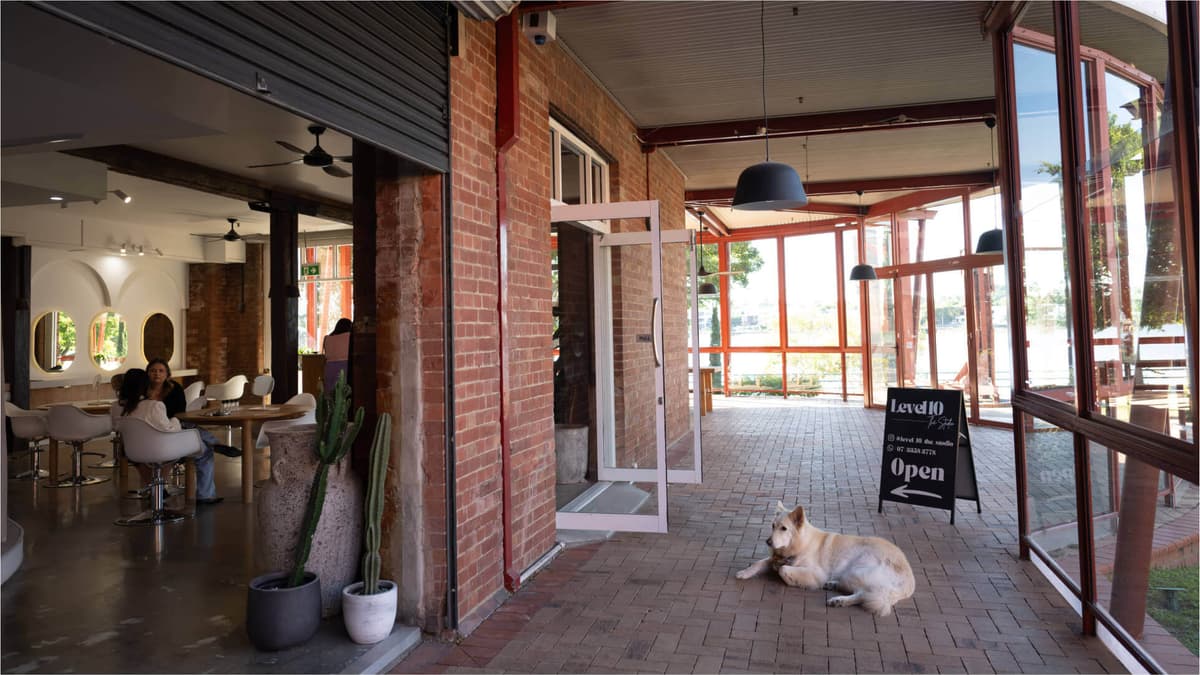
- Business Growth & Optimisation
- Case Studies
From Salon to Solo: How Tech is Changing the Face of Beauty Businesses
A new generation of beauty and hair professionals are forging their own paths, choosing to work independently rather than seek traditional employment. It’s a shift driven by new technology, social media, and a growing number of specialised co-working spaces. We spoke with Brisbane-based hairdresser Alandra Flatley and Melbourne-based skin and beauty therapist Emily Keane about their decision to go freelance, and how they're using technology, like Zeller, to streamline the transition.
On first impressions, Level 10, The Studio, in Brisbane’s inner suburb of Teneriffe, looks like a regular – albeit beautiful – hair salon. Clients sip lattes with a view out to the river while the team around them cuts, colours, and blow dries. What you don’t notice, however, is that most of the stylists are running their own business. This collaborative work environment, made up of freelancers, contractors, and a handful of employees, represents a significant shift away from traditional top-down business models, and one that is being embraced across the hair and beauty industry.






The future looks good.
“It’s the way of the future”, says Alandra Flatley, a hair stylist who has been working from the space since November. After being employed in a salon for 17 years, she decided to go out on her own in early 2023 . “I just wanted more freedom and more flexibility,” she says. “I was keen to get out of that traditional environment and work somewhere where I could see the clients I wanted to see, work the hours I wanted to work, and be able to earn more.” Not ten years ago, this idea might have been a radical one, but with hair and beauty professionals now able to amass a network of followers (and potential clients) on social media platforms like Instagram and TikTok, and rent rooms or chairs within specialised workspaces – the barriers to entry aren’t what they used to be.

Alandra Flatley, freelance hairdresser at Level 10, The Studio in Brisbane.
Service over sales.
For Emily Keane, a Melbourne-based skin and beauty therapist specialising in holistic skincare, the decision to become a sole trader was an ethical one. “When I was working for different spas and skin clinics, I wasn’t able to be authentic and fully care for the client,” she explains, “there was a huge amount of pressure on sales… we were told to get customers in for as many treatments as possible as often as possible, and then upsell any sort of products that would work for them… the sentiment was, ‘no matter what treatment they are getting, there's always something to sell them’. Which I just don’t agree with,” Emily says. It came down to the choice to either pivot into beauty education or open her own salon. She chose the latter. After leaving full-time employment, Emily launched Cared for Skin & Body from her rental in Caulfield North. “I really expected there to be way more roadblocks… but it just all kind of happened very quickly,” she says.

Emily Keane, sole trader and owner of Cared For Skin & Body in Melbourne.
“I can create my own rules and tailor everything to the client, rather than making them fit the box that suits the business.” – Emily Keane
New tech tipping the balance.
Indeed, both Alandra and Emily are amongst a cohort of first-time business owners who are benefitting from the latest tools and technology available to help them get set up. “Technology is affording so many more opportunities and giving people so much more freedom,” says Alandra, “We’ve got keyless entry into the co-working space, everything can be digitally locked, and there’s so much support now with companies like Zeller for managing your finances, Hnry for filing your taxes, Timely for booking appointments…” she explains. Emily, who also uses Zeller and Timely, agrees, “It's a lot easier now. Services are way more accessible for everyday people who aren’t tech wizards or have studied business. There's a lot of guidance within the companies as well, and a lot of support, so you don't need to be an expert in everything… You can give it all a go and you learn very quickly.”






Flawless financial management.
When it came to managing their finances, these digital natives were both quick to choose Zeller, citing the ease of creating an account online and the ability to manage their funds all in one place as motivating factors. “I also loved the fact that the EFTPOS terminal was such a good price and that I got a bank account and a debit card attached to it,” says Alandra, “Plus the Zeller Savings Account has such a good interest rate. So I started putting my tax and GST money in there each week.” Emily agrees, “A lot of what I needed was integrated within just the one tool which has been really important to me. I can do everything primarily through Zeller, including putting money away for tax and savings. It's very easy to keep my finances organised and see what's happening within the business,” she explains.

As for accepting payments, Zeller’s range of solutions has also helped give them the flexibility they need for their modern businesses. For Alandra, accepting payments on her smartphone with Tap to Pay has given her one less device to charge (or forget at home!), while for Emily, it’s facilitated taking payment on the go when she does product drop-offs at her clients’ houses. Additionally, Zeller’s online invoicing solution has meant Alandra can charge the salon when they need help with extra clients, and Zeller Virtual Terminal lets Emily send payment links to customers who wish to pre-pay for their appointments or buy gift vouchers. The beauty of being able to accept all their payments and have their money settled nightly into their Zeller Account, means that they get a clear overview of their incoming and outgoing funds. “It shows me more in-depth information on where my money is coming from. I can track my sales and see what days are more popular,” says Emily. “Sometimes I might want to try a specific product but I'll wait until I see my cash flow for the week on Zeller App before deciding whether or not I should hold off on the order,” says Alandra.

Everybody wins.
Armed with modern apps like Zeller, these fiercely independent businesses are able to function efficiently and affordably – which in turn, reduces the pressure on bookings and sales. Both women agree: a lot more income can be generated by working alone. But it’s the clients who are the real winners. “Some people just want to come in and relax. It's a special treat. They don't want to be sold a bunch of stuff or be pressured to rebook at the end. They should be able to just enjoy that experience,” explains Emily. Similarly, Alandra believes that having independent stylists creates more accountability: “If you’re employed, you’re getting paid no matter what. But I know I’d prefer to have my hair cut by someone who really wants to be there, rather than someone who is just showing up for work.”
By doing away with outdated sales tactics and sidestepping operational barriers thanks to new technology, these entrepreneurs are taking a modern and refreshing approach to business. And it’s reaping benefits for both them, and their customers.
